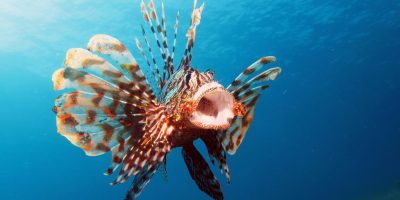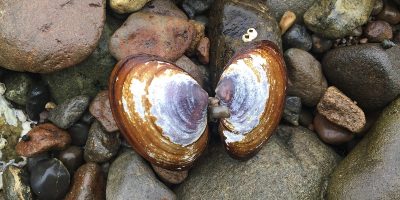By Gina Pak, Environmental Studies undergraduate
Knowledge is all around us, and comes from many different sources. Whether it is local, scientific, or even indigenous, all knowledge is useful and can become an important baseline for new research projects or developing better policies and management methods in fisheries. However, there is a gap in what is known from scientific knowledge and other ‘knowledge systems’ including local and indigenous knowledge.
What is local and indigenous knowledge?

Members of the Tulalip Tribe sing along the banks of the Fraser River in Chilliwack, British Columbia, as part of a ceremony to honor the waters and marine life so integral to the Coast Salish way of life. CHRIS JORDAN-BLOCH / EARTHJUSTICE
Local knowledge is the information that people in a certain community have acquired over time and add onto the existing knowledge from one generation to another. Indigenous knowledge is local knowledge within indigenous communities that extends further back into history and through many generations. Both types of knowledge are unique to a culture or society. They are based on experience, and used to adapt to the local environment and relate to the beliefs and perceptions that people hold about the world that surrounds them. Local or indigenous knowledge isn’t always 100% factual or true but can offer a lot of useful information that scientific knowledge lacks or might not have focused on.
What does it have that scientific knowledge doesn’t?
Place based-experience accumulated over tens and thousands of years.
In a recently article by George Nicholas, a team of researchers in northern Australia observed and documented falcons intentionally carrying burning sticks to spread fire. The birds take advantage of natural fires that cause their prey to flee from underground, but the research documented by scientists showed that these “firehawks” would spread the fires further out on their own.
Although new to scientific knowledge, the behaviors of the falcons have always been known to the Alawa, MalakMalak, Jawoyn, and other Indigenous peoples of northern Australia whose ancestors have lived on these lands for thousands and thousands of years.
Local and indigenous knowledge in fisheries
The article cited above is only one of many examples where scientific knowledge has caught up to to local or indigenous knowledge. Even in previous talks from this year’s Bevan’s series, we have seen much benefit from local and indigenous knowledge. In Lynda Mapes’ presentation on Truth-Telling in the Salish Sea: The Black Art of Communicating Climate Change she talked about working with local tribes near the Skagit River to get information about whether farmed Atlantic salmon would be able to survive in the wild and pose a risk to native salmon. In doing so, she was able to stick to the truth and satisfy readers with real evidence. She was also able to prove that the Washington Department of Fish and Wildlife needed to adjust some of their conclusions because it was not completely factual.

Local fishermen in East Africa coming back to shore from a successful trip. Credit: thestylejunkies.com
Local knowledge has also been a big part of Christina Hicks’ research. Her talk on moving Towards Socially and Nutritionally Sensitive Fisheries focused on how social and natural sciences can work together to produce more relevant research results. Local knowledge in this context is helpful because information from the community in a specific area can be used to find the baseline for research and answer questions that are high priority for the community. As a result, Dr. Hicks was able to suggest possible solutions to the nutrition deficiencies they have in the fishing community.
Applying the use of local or indigenous knowledge to more research in fisheries can provide better solutions for issues related to fisheries and potentially better management and policies. If more researchers considered local and indigenous knowledge in their research, we will make progress in narrowing the gap between scientific knowledge and the other knowledge systems.
Learn more about local/indigenous knowledge:
- Find articles and background information related to the Native American Tribes in our region- the Salish Sea
- Learn more about programs available for this area of study
- Explore the ways in which local and indigenous knowledge contribute to the understanding, mitigating and adapting to environmental issues
- Read related blog posts on Lynda Mapes and Christina Hicks
Works Cited
Bonta, M., Gosford, R., Eussen, D., Ferguson, N., Loveless, E., & Witwer, M. (2017). Intentional Fire-Spreading by “Firehawk” Raptors in Northern Australia. Journal of Ethnobiology, 37(4), 700-718. doi:10.2993/0278-0771-37.4.700
Hicks, C. (n.d.). Towards Socially and Nutritionally Sensitive Fisheries. Lecture presented at Bevan Series in WA, Seattle.
Mapes, L. (n.d.). Truth-Telling in the Salish Sea. Lecture presented at Bevan Series in WA, Seattle.
Nicholas, G. (2018, February 21). When Scientists “Discover” What Indigenous People Have Known For Centuries. Retrieved March 05, 2018, from https://www.smithsonianmag.com/science-nature/why-science-takes-so-long-catch-up-traditional-knowledge-180968216/
WHAT IS LOCAL KNOWLEDGE? (n.d.). Retrieved March 05, 2018, from http://www.fao.org/docrep/007/y5610e/y5610e01.htm






Leave a Reply